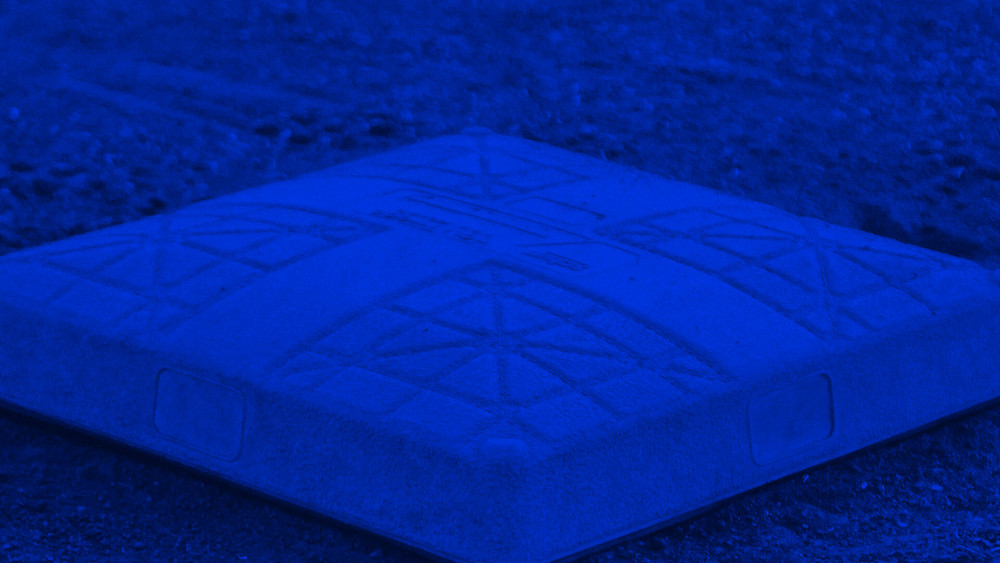Whether focusing on billable hours, calculating pleading deadlines, or complying with a court’s scheduling order, every lawyer understands the importance of time (or the lack thereof) in the practice of law. Litigators especially appreciate the frustrations and importance of time running out, i.e., the expiration of time in which to designate an expert or to file a complaint. A statute of repose is yet another timekeeper, and depending on the applicable state, it may save a product liability defendant (and defense lawyer) some time and litigation expense.
What is a Statute of Repose?
A statute of limitations is based on a period of time between the date of a plaintiff’s injury and the date upon which the plaintiff can assert a cause of action. Similar to a statute of limitations but distinctive from it, a statute of repose is defined as a statute that bars any suit brought later than a specified time after the defendant acted (i.e., by designing or manufacturing a product).1 In the context of products liability cases, a statute of repose extinguishes the right to sue not based on the date of injury, but on the date of sale of the product at issue. The purpose of a statute of repose is to limit a manufacturer’s liability at some definite point in time so much so that a plaintiff literally may not have any cause of action.2 A claim may be barred even before the product at issue allegedly causes any harm or injury.
The Statute of Repose at Work
In Lackey v. DePuy Orthopaedics, Inc., plaintiff had a prosthetic hip implanted on January 19, 1998.3 The plaintiff eventually experienced complications and had a total hip revision in June 2009 to address the defective hip prosthetic.4 Thereafter, the plaintiff filed a lawsuit against the manufacturer of the prosthetic hip.5 Although the plaintiff asserted causes of action for breach of implied warranty, breach of express warranty, and negligent infliction of injury, the defendant manufacturer argued that plaintiff’s claims were tantamount to products liability claims.6 The defendant also argued that the then-enacted six-year statute of repose barred plaintiff’s claims against it.7 The plaintiff argued that North Carolina’s modified twelve-year statute of repose applied.8 The court, however, found that the six-year statute of repose applied to plaintiff’s claims based on plaintiff’s January 1998 purchase and the enactment and effective dates of the six-year statute of repose.9 As such, the plaintiff’s right to sue the defendant manufacturer expired in January 2004.10 Finding the statute of repose an “insurmountable bar to any recovery,” the court dismissed plaintiff’s claims.11
In Campbell v. Coca-Cola Enterprises, Inc., a man was electrocuted while servicing a vending machine on August 26, 2009.12 The man died, and his widow sued the vending machine manufacturer for multiple causes of action to include negligence and strict products liability.13 The manufacturer moved for summary judgment on the grounds that it shipped the vending machine at issue on March 30, 1998, to the initial user or consumer, and the ten-year statute of repose in Illinois barred the plaintiff’s product liability causes of action against it.14 Finding that the statute of repose expired on March 30, 2008, which was over a year before the incident at issue, the court granted summary judgment and dismissed the plaintiff’s product liability claims with prejudice.15
In Salgado v. Great Dane Trailers, plaintiffs filed suit against the manufacturer of a trailer in which plaintiffs’ decedents became trapped and died.16 Plaintiffs’ 2010 complaint asserted several causes of action against the trailer manufacturer to include strict liability, negligence, and breach of express and implied warranties.17 The defendant manufacturer, however, moved for summary judgment on the grounds that the Texas product liability statute of repose barred plaintiffs’ claims as the defendant had manufactured and sold the trailer at issue over fifteen years prior to plaintiffs’ complaint.18 As the defendant manufacturer had sold the trailer at issue on July 15, 1997, plaintiffs were required to bring any claims against it by July 15, 2007.19 The court granted summary judgment and found that the statute of repose barred plaintiffs’ product liability claims because plaintiffs filed their action eighteen years after the trailer was first sold.20
States with Product Liability Statutes of Repose
The following states have a statute of repose applicable to product liability claims:
Colorado: Colo. Rev. Stat. § 13-80-107
- Applies to actions against manufacturers, sellers, or lessors of new manufacturing equipment.
- While there are exceptions, the statute of repose bars actions arising more than seven (7) years after the manufacturing equipment is first used for its intended purpose.
Connecticut: Conn. Gen. Stat. § 52-577a
- Applies to actions based on product liability claims brought after October 1, 1979.
- While there are exceptions, the statute of repose bars any action later than ten (10) years from the date when a party last parted with possession or con-trol of the product at issue.
Florida: Fla. Stat. § 95.031(2)(b)
- Applies to actions for products liability.
- While there are exceptions, the statute of repose bars actions for harm caused by any product with an expected useful life of ten (10) years or less if the harm was caused by use of the product more than twelve (12) years after delivery of the product to its first purchaser.
- For aircraft, vessels, railroad equipment, elevators, and escalators, the statute of repose bars product liability actions more than twenty (20) years after delivery of the product to its first purchaser.
Georgia: Ga. Code § 51-1-11(b)(2)
- Applies to actions against manufacturers for negligence.
- While there are exceptions, the statute of repose bars actions after ten (10) years from the date of the first sale for use or consumption of the product at issue.
Idaho: Idaho Code § 6-1403
- Applies to actions for product liability.
- While there are exceptions, the statute of repose raises a presumption in cases where the harm was caused more than ten (10) years after delivery of the product at issue. The presumption may be rebutted only by clear and convincing evidence.
Illinois: 735 Ill. Comp. Stat. 5/13-213.
- Applies to product liability actions after January 1, 1979.
- While there are exceptions, the statute of repose bars strict liability actions twelve (12) years from the date of first sale or delivery by a seller or ten (10) years from the date of sale or delivery to its initial user or consumer, whichever period expires earlier.
Indiana: Ind. Code § 34-20-3-1
- Applies to negligence and strict liability in tort actions.
- While there are exceptions, the statute of repose bars actions ten (10) years after delivery of the product at issue to the initial user or consumer.
Iowa: Iowa Code § 614.1(2)(A)(a)
- Applies to products liability actions.
- While there are exceptions, the statute of repose bars actions fifteen (15) years after a product was first purchased or installed for use or consumption.
Kansas: Kan. Stat. § 60-3303
- Applies to actions for products liability.
- While there are exceptions, the statute of repose raises a presumption in cases where the harm was caused more than ten (10) years after delivery. The presumption can be rebutted by clear and convincing evidence only.
Kentucky: Ky. Rev. Stat. § 411.310
- Applies to actions for product liability.
- While there are exceptions, the statute of repose raises a presumption in cases where the harm occurred more than five (5) years after the sale to the first consumer or more than eight (8) years after the date of manufacture. The presumption can be rebutted by a preponderance of the evidence.
Nebraska: Neb. Rev. Stat. § 25-224
- Applies to actions for product liability.
- While there are exceptions, the statute of repose bars actions ten (10) years after the product was first sold for use or consumption if manufactured in Nebraska.
- For products manufactured outside of Nebraska, the statute of repose bars actions based on the applicable statute of repose of the state where the product was manufactured but in no event less than ten (10) years.
North Carolina: N.C. Gen. Stat. § 1-46.1
- Applies to actions for product liability.
- Applies to actions that occur on or after October 1, 2009.
- While there are exceptions, the statute of repose bars actions twelve (12) years after the date of initial purchase.
North Dakota: N.D. Cent. Code § 28-01.4-04
- Applies to aviation product liability actions.
- While there are exceptions, the statute of repose raises a presumption in cases where the harm occurred ten (10) years after the date of delivery to the first user. The presumption may be rebutted by clear and convincing evidence.
Ohio: Ohio Rev. Code § 2125.02(D)(2)(a)
- Applies to wrongful death actions for product liability.
- While there are exceptions, the statute of repose bars wrongful death causes of actions related to a product liability claim later than ten (10) years from the date the product was delivered to its first purchaser.
Oregon: Or. Rev. Stat. § 30.905
- Applies to actions for product liability.
- While there are exceptions, the statute of repose bars actions ten (10) years after the date the product was first purchased.
- Where the product was manufactured in a state with a statute of repose, the applicable state’s statute of repose applies.
Tennessee: Tenn. Code § 29-28-103
- Applies to actions for product liability.
- While there are exceptions, the statute of repose bars actions ten (10) years from the date the product was first purchased or within one (1) year after the expiration of the expected life of the product, whichever is shorter.
Texas: Tex. Civ. Prac. & Rem. Code § 16.012
- Applies to actions for product liability.
- While there are exceptions, the statute of repose bars actions fifteen (15) years from the date of sale of the product.
Washington: Wash. Rev. Code § 7.72.060
- Applies to actions for product liability.
While there are exceptions, the statute of
repose raises a presumption in cases where the harm occurred more than twelve
(12) years after the time of delivery. The presumption may be rebutted by a
preponderance of the evidence
[i] Black’s Law Dictionary. 1451 (8th Ed. 2004).
[ii] Lackey v. DePuy Orthopaedics, Inc., No. 5:10-cv-00030-RLV-DSC, 2011 WL 2791264, at *2 (W.D.N.C. July 14, 2011)(original citations omitted).
[iii] No. 5:10-cv-00030-RLV-DSC, 2011 WL 2791264, at *1 (W.D.N.C. July 14, 2011).
[iv] Id.
[v] Id.
[vi] Id. at *2.
[vii] Id.
[viii] Id.
[ix] Id. at *3.
[x] Id.
[xi] Id.
[xii] No. 11 C 1674, 2012 WL 1158746, at *1 (N.D.Ill. April 4, 2012).
[xiii] Id. at *2.
[xiv] Id. at *3.
[xv] Id.
[xvi] No. V-10-82, 2012 WL 401484, at *1 (S.D.Tex. Feb. 6, 2012).
[xvii] Id.
[xviii] Id.
[xix] Id. at *3.
[xx] Id.
Finis
Citations
- Black’s Law Dictionary. 1451 (8th Ed. 2004). Jump back to footnote 1 in the text
- Lackey v. DePuy Orthopaedics, Inc., No. 5:10-cv-00030-RLV-DSC, 2011 WL 2791264, at *2 (W.D.N.C. July 14, 2011)(original citations omitted). Jump back to footnote 2 in the text
- No. 5:10-cv-00030-RLV-DSC, 2011 WL 2791264, at *1 (W.D.N.C. July 14, 2011). Jump back to footnote 3 in the text
- Id. Jump back to footnote 4 in the text
- Id. Jump back to footnote 5 in the text
- Id. at *2. Jump back to footnote 6 in the text
- Id. Jump back to footnote 7 in the text
- Id. Jump back to footnote 8 in the text
- Id. at *3. Jump back to footnote 9 in the text
- Id. Jump back to footnote 10 in the text
- Id. Jump back to footnote 11 in the text
- No. 11 C 1674, 2012 WL 1158746, at *1 (N.D.Ill. April 4, 2012). Jump back to footnote 12 in the text
- Id. at *2. Jump back to footnote 13 in the text
- Id. at *3. Jump back to footnote 14 in the text
- Id. Jump back to footnote 15 in the text
- No. V-10-82, 2012 WL 401484, at *1 (S.D.Tex. Feb. 6, 2012). Jump back to footnote 16 in the text
- Id. Jump back to footnote 17 in the text
- Id. Jump back to footnote 18 in the text
- Id. at *3. Jump back to footnote 19 in the text
- Id. Jump back to footnote 20 in the text


